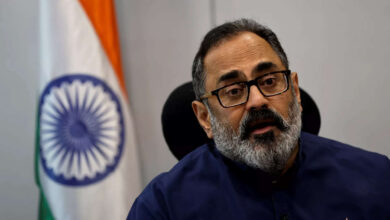
Singapore– In the last few months, we have witnessed a complete change in the travel prospects across the globe, with countries slowly opening their borders for travelers worldwide. All the nations closed the walls when the COVID-19 virus started to spread globally, and it was much needed to complete these borders to prevent the wide spreading of the highly contagious virus.
There was no international travel for a very long time, as all the international flights were banned and all the borders across the globe were closed. However, the long wait to open these borders became true when the vaccination process started to gain pace. International travel started to resume again, with many countries opening their borders and allowing international travelers to enter their country, but with some restrictions.
Slowly, all the countries across the globe are now opening their borders for international travelers and are reducing the strictness of restrictions imposed on these travelers. Today, we will be discussing one such country, which recently opened up its borders for international travelers and has lifted its restrictions. Yes, the country we’ll be talking about today is Singapore which recently raised its travel restrictions imposed previously due to the COVID-19 pandemic. What are the relaxations, and what is the scenario for Indian travelers? We will be discussing all of this today.
Singapore
Officially known as the Republic of Singapore, the country is a sovereign city-state located in maritime Southeast Asia. It is a popular tourist destination, and the government records a considerable number of international travelers every year before the pandemic strike. The country was under lockdown for an extended period to curb the spread of the COVID-19 virus, and all the international borders were closed. However, things had started to change now when the vaccination process across the globe picked up the pace.
Singapore recently opened its international borders for travelers from India, Myanmar, Sri Lanka, Pakistan, and Nepal starting from the 26th of October but with some restrictions. Regular lifting up travel barriers means that the country will allow travelers to have a 14-day travel history. However, this is not the case with travelers from the countries mentioned above.
The reason behind this is the decision of the Singapore government to put all the travelers from these countries through category IV of its border measures, which is known to be the strictest category of them all. To better understand who can travel and who cannot and the restrictions, let us first discuss what category IV of the border measure means.
Category IV
Under category IV, which is referred to as the strictest of the all four categories of border restrictions imposed by the government of Singapore, only the citizens of the nation as well its permanent residents, along with travelers under the death and critical illness emergency visit lanes are allowed to enter the country of Singapore.
Other than the travelers listed above, all other travelers, including those who have received prior notice of entry approvals and do not fall in the category mentioned above, are denied entry in the country of Singapore, as per the regulations of this category.
Further, all the travelers eligible under the category under the fourth category will be required to carry a negative RT-PCR report that too should not be more than 48 hours ahead of arrival. Moreover, the travelers will be subject to another test at the Singapore airport upon arrival in the country. They will also be required to quarantine themselves in a dedicated quarantine facility for ten days.
On the brighter side, as per the statement published by the health ministry of Singapore, they claimed to be lenient with the restrictions previously imposed. Any traveler having a 14-day travel history to India, Bangladesh, Pakistan, Sri Lanka, Nepal, or Myanmar was not allowed to enter the borders of Singapore earlier.
However, the health officials have claimed to review the situation of the COVID-19 virus in all the nations mentioned above and have concluded to allow entry to any traveler with a 14-day travel history to India, Bangladesh, Pakistan, Sri Lanka, Nepal, and Myanmar before departure to Singapore will be allowed to enter the borders of Singapore and transit too, starting from this 26th.
What about the travelers from other countries except the countries mentioned above?
To be exact, the city-state has allowed travelers from other countries to enter into the borders of Singapore, which belong to those countries where the COVID-19 virus is under control, and the protocols are efficient in curbing the spread of the highly contagious virus.
Earlier, to beat the ban on travel from India, those wanting to return to Singapore, which we’re currently in India, traveled first to another country that has allowed Indian citizens and then to Singapore. The catch is that to prevent the restrictions of 14-day travel history, these travelers had to stay for a minimum of fourteen in the third country (the country they flew to before going to Singapore).
Moreover, in August, Singapore also introduced the vaccinated travel lanes with two countries: Germany and Brunei Darussalam. What are these vaccinated travel lanes? These are simple extensions of the expected travel lanes, which are only applicable for international travelers who have been fully vaccinated.
These vaccinated travel lanes have been expanded to Denmark, France, Italy, Netherlands, Spain, United Kingdom, Canada, South Korea, and the United States. These lanes have been growing at a very significant pace and have covered a lot of countries by now. They also play an important role in acting as an incentive for people to get vaccinated.
Let us now discuss in brief the other countries which have opened their barriers for travelers from India.
Our country recently recorded 100 million vaccine jabs, which clearly shows how great the vaccination process is. Witnessing this, many countries have now started to open their barriers for Indian travelers. These countries include Spain, Maldives, UAE, Germany, Turkey, Thailand, and many more, which have opened their borders for Indian travelers.
Talking about Turkey, its embassy in Delhi announced last month that the Indian travelers visiting Turkey will no longer have to undergo the extended 14 day quarantine period. This is applicable only if the traveler is fully vaccinated. Similarly, Germany reclassified India to a lower risk level group and therefore the travel ban imposed earlier on the Indian travelers. All Indian travelers are now allowed to enter the borders of Germany and travel with restrictions.
Ever since the government made its vaccination process and recorded the high number of daily vaccination doses, many countries are opening their barriers for the nation’s travelers. Spain, a trendy tourist destination, allows fully vaccinated Indian travelers to enter their country now. This eases up the problems of business people and students who are waiting to travel to countries for work or study purposes.
Article Proofread and Edited by Shreedatri Banerjee




